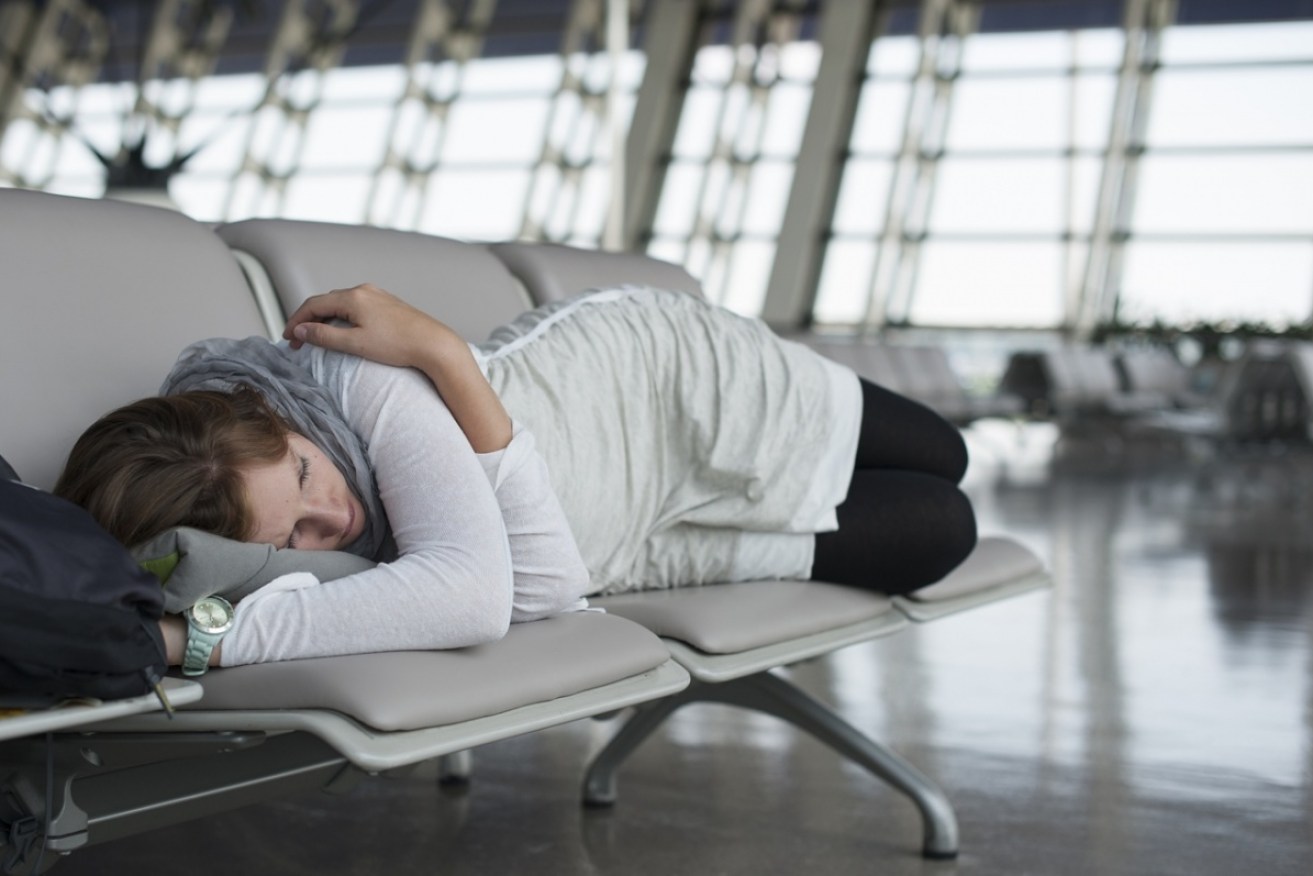How long does jet lag last and how can you avoid it

It doesn’t matter which direction you are going — you can still get jet lag. Photo: Seatmaestro
Jet lag happens to the best of us – that feeling of fatigue and insomnia that comes after travelling across different time zones.
When someone from Australia travels to the US, for example, their body is likely to continue to operate on Australian time for a while. Their brain might also become disorientated as it attempts to adjust to the new time zone.
This is a particular issue for airline pilots, crew and frequent travellers.

Jet lag can even occur on short domestic flights with no time-zone difference. Photo: Huffington Post
What are the symptoms of jet lag?
People are likely to experience physical and emotional symptoms. These include:
- sleep disturbance
- anxiety
- constipation
- diarrhoea
- confusion
- dehydration
- headaches
- nausea
- indigestion
- sweating
- dizziness
Jet lag can also cause serious complications but, fortunately, these are extremely rare.
According to Medicinenet, in someone with a pre-existing heart condition, “the stress of the disruption in the circadian rhythm, combined with the stress of travel and immobility during a flight may result in a heart attack”. As always, if you feel unwell – see a doctor.
How long does jet lag last?
It usually lasts a few days but the length can depend on the number of time zones crossed.
Anecdotally, crossing the international date line makes jet lag worse – but experts say there’s no truth in this.
As a guide for calculating jet lag, it is the number of time zones crossed, with a maximum possible time difference of plus or minus 12 hours.
If the time difference between two locations is more than 12 hours, subtract that number from 24.
How do you get avoid or minimise jet lag?
The US National Sleep Foundation recommends selecting flights that allow for an early evening arrival.
It also recommends avoiding alcohol and caffeine for at least three to four hours before bedtime. Both act as stimulants and prevent people from sleep.
Staying indoors also worsens the disorder. Going outside means sunlight will regulate the biological clock.
Staying hydrated and moving around will also improve symptoms.








